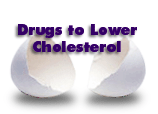|
MYTH # 1: Those medicines for cholesterol will mess up your liver. Don't take them! |
 |
|
MYTH # 1: Those medicines for cholesterol will mess up your liver. Don't take them! |
 |
THE FACTS The level and type of cholesterol in the blood remains one of the most important determinants of the risk of developing blockages of the arteries, and the ensuing complications of heart attacks, stroke, death, etc. A good diet, maintaining ideal body weight, and exercise can help reduce the risks, but some people will have high cholesterol and bad events despite following the guidelines.We are fortunate to live in an age when we have agents that will help us reach desireable goals of both good and bad cholesterol. Statin agents (such as "Zocor", "Mevacor", "Pravachol", "Baycol" and "Lipitor") are potent agents which can lower even markedly elevated levels of bad cholesterol. Agents such as Lopid or Tricor (these are called "fibrate agents") can lower triglycerides and raise good cholesterol. A naturally occuring vitamin (niacin) has now been developed in a long-acting formulation ("Niaspan") which not only lowers bad cholesterol, lowers triglycerides, and raises good cholesterol, but lowers the amount of other toxic types of cholesterol such as "lipoprotein (a)". There is abundant information from well-designed clinical trials to show that these agents not only make the levels of these substances better, but clearly lower the risk of having a heart attack, stroke, bypass surgery, etc. Yes, like all other medicines, there may be side effects . . . but they are generally mild, can be caught early with blood tests, and are reversible. If your cholesterol is high, particularly if you have other "risk factors" for having a heart attack or stroke, doesn’t it make more sense to lower your risks of averting these catastrophes by 30-45%? Don’t be scared off by a medicine that causes side effects which are mild and reversible and occur in a much lower number of people! These medications are one of the most effective means to lower the risks of death and disability from disease of the blood vessels. Proper monitoring minimizes the low incidence of side effects. |
 |
CONCLUSION These medications are one of the most effective means to lower the risks of death and disability from diseases of the blood vessels (atherosclerosis and hardening of the arteries). Proper monitoring minimizes the low incidence of side effects. |
|
ęCOPY;1997 HeartPoint Updated December 1998.
| Drugs to Lower Cholesterol
| Smoking | Good Levels of Cholesterol | Pain not from Heart |
| Exercise | Vitamins | Nitroglycerin | Low
Cholesterol Foods | A Few Drinks |
| Women No Heart Disease | Stress | Got to Die
Sometime |

![]()
| Commentary |
Food You Will Love | HeartPoint
Gallery | In The News | Health Tips | What's New
| Information Center | Home
|
This site presents material for your information, education and entertainment. We can assume no liability for inaccuracies, errors, or omissions. Above all, material on this site should not take the place of the care you receive from a personal physician. It is simply designed to help in the understanding of the heart and heart disease, and not as a diagnostic or therapeutic aid. You should seek prompt medical care for any specific health issues. Please feel free to browse the site and download material for personal and non-commercial use. You may not however distribute, modify, transmit or reuse any of these materials for public or commercial use. You should assume that all contents of the site are copyrighted. ęCOPY;1997 HeartPoint